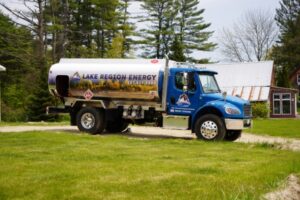Dangers of Letting Your Propane Tank Go Empty
Letting your propane tank run dry isn’t just an inconvenience—it can lead to unexpected safety risks, costly repairs, and frustrating disruptions to your daily routine. An empty tank can wreak havoc on your home systems. Discover why it’s critical to keep your propane supply steady and the steps to recover safely.
Read MoreWhy Water Quality Matters For Your Boiler System
Boiler efficiency isn’t just about the equipment—it’s about the water inside. Contaminants like minerals and gases can quietly sabotage performance, leading to higher costs and potential damage. But how does water quality affect heat transfer and system longevity? Understanding this relationship could be the key to better efficiency and lower bills.
Read MoreWinter Propane Safety: What You Need To Know
Propane is a versatile and efficient fuel, essential for keeping homes warm during winter. However, safety is paramount when managing propane systems and appliances. This article explores critical safety measures, tips for handling potential issues, and steps to prepare for emergencies, helping ensure a safe, cozy, and worry-free heating season.
Read MoreUnderstanding the Factors Behind Heating Oil Price Fluctuations
Home heating oil prices often fluctuate, creating uncertainty for homeowners preparing for the heating season. Understanding the variables behind these shifts is essential for effective budgeting. This article delves into the elements that impact fuel oil pricing, offering valuable insights to help you anticipate changes and manage your heating expenses wisely.
Read MoreCommon Mistakes That Push Your Furnace Too Hard
During the winter, your furnace works tirelessly to keep your home warm. However, some common habits and overlooked issues could be causing it to work harder than necessary, leading to inefficiency and potential breakdowns. Discover six surprising ways you may be unintentionally overworking your furnace and learn how to help it run more smoothly.
Read MoreHeating Oil Delivery Options: A Comparative Guide
Deciding between will-call and automatic heating oil delivery can significantly impact your home’s warmth and energy management during winter. Each option offers distinct advantages, from control and flexibility to convenience and reliability. Understanding their key differences will help you determine which method best aligns with your lifestyle and heating needs.
Read MorePropane Gas Basics: 10 Things You Probably Didn’t Know
Did you know that propane gas is more than just a fuel for cooking and heating? This incredible energy source is versatile, clean-burning, and efficient. In this article, we’ll delve into ten surprising facts about propane that highlight its unique benefits. Discover why propane is a smart choice for modern energy needs.
Read MoreEssential Winter Maintenance Checklist for Homeowners
Preparing your home is essential to ensure comfort and efficiency as winter approaches. There are key steps you can take to safeguard your home against the cold including checking your heating system. A well-organized checklist will guide you through these tasks, helping you avoid costly issues and maintain warmth throughout the season.
Read MoreAFUE Ratings Explained: What Homeowners Need To Know
AFUE ratings are pivotal in determining how efficiently a heating system converts fuel into heat. By understanding this percentage-based metric, homeowners can make smarter choices impacting energy use and heating costs. But how do different AFUE ratings compare, and what should you look for in your heating system? Learn more about it here!
Read MoreEssential Tips For Selecting A Dependable Fuel Oil Provider
Selecting a fuel oil company requires more than just finding a provider. Various factors, such as pricing plans and more, play a crucial role. By understanding these elements, you can choose a company that meets your unique heating needs, ensuring efficiency and peace of mind. Discover key tips for making the right decision.
Read More








